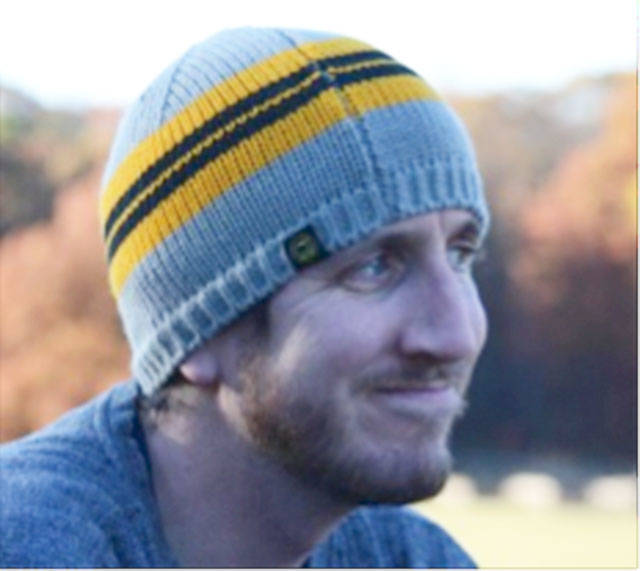On Sunday, July 28, “the world’s greatest summer food fair” came to a tragic end.
A “really angry” 19 year-old-white-supremacist snuck into the Gilroy Garlic Festival and committed a mass shooting, killing three people and injuring 15 more.
I followed closely as the events were reported; I had flashbacks to the worst mass shooting in recent U.S. history; I knew two people who were shot and survived in Las Vegas, and I was completely outraged.
When I wrote about the Vegas shooting in 2017 I started by referencing The Onion, a satire site, that posted: “NRA Says Mass Shootings Just The Unfortunate Price Of Protecting People’s Freedom To Commit Mass Shootings” and “‘No Way To Prevent This, Says Only Nation Where This Regularly Happens.” Light-hearted humor will not mitigate our crisis.
I am still infuriated. I have a young niece, and I cherish the time I get to spend with her, so every time children are targeted by extremist violence it cuts even deeper. In Gilroy a 6-year-old boy was murdered; I cannot write that without tears running down my cheeks.
As a doctor of peace and conflict, however, sadness is not good enough. Thoughts and prayers have not kept a single child safe. We have an epidemic: U.S. citizens are 20 times more likely to die of gun violence than those of other developed nations. Beautiful young children — our collective future — are among the causalities.
We should also focus on the children at the border. It relates to the anger and divisiveness just the same.
The American Psychological Association says: “The administration’s policy of separating children from their families as they attempt to cross into the United States without documentation is not only needless and cruel, it threatens the mental and physical health of both the children and their caregivers.”
The American Academy of Pediatrics says: “Separating children from their parents contradicts everything we stand for as pediatricians — protecting and promoting children’s health. In fact, highly stressful experiences, like family separation, can cause irreparable harm, disrupting a child’s brain architecture and affecting his or her short- and long-term health.”
We may never come to know the true and complete motivations that enable or push a person to murder a child, but some shooters leave their manifestos. Trump’s xenophobia was heavily cited in the manifesto left behind after children were murdered in Churchill New Zealand earlier this year. People are whipped up into frenzies over many divisive issues; “send her back” was recently a chant at a Trump rally.
The sentiment that foreigners are not welcome is not hidden in these attacks on Somali refugee-turned-Rep. Ilhan Omar. A Department of Homeland Security officer said he would “put a bullet in” Omar, a law enforcement officer says Alexandria Ocasio-Cortez “needs a round… not like she used to serve,” and all of the hatred and extremism are connected by underlying bigotry of white-supremacy and social-Darwinism.
The kind of sociopathy required to murder children or separate them from their families and keep them in cages is quite rare. During genocidal campaigns many people have found ways to deny or ignore the undeniable. I (as have others) received significant pushback from people on the Right for correctly using the term “concentration camp” to describe what the Trump Administration has created at the border.
The New York Times has reported of the detention center in Clint, Texas:
“Outbreaks of scabies, shingles and chickenpox were spreading among the hundreds of children who were being held in cramped cells, agents said. The stench of the children’s dirty clothing was so strong it spread to the agents’ own clothing — people in town would scrunch their noses when they left work. The children cried constantly. One girl seemed likely enough to try to kill herself that the agents made her sleep on a cot in front of them, so they could watch her as they were processing new arrivals.”
Moral people must be uncomfortable about such cruelty being inflicted on innocent children. It is a call to consciousness like Martin Luther King Jr. champions “where do we go from here?” and his answer is “community.” But it is a struggle; researching the responses on the recent episodes of violence like what happened in Gilroy or the extremist violence of the Poway synagogue and Churchill mosque shootings earlier this year present serious gaps. On the conservative site Breitbart, blame is placed on the prohibitions against weapons at the festival, and more extremists sites praise attacks like these.
When shooters can praise Trump as a symbol of renewed white identity; when officers sworn to protect and serve can shamelessly express a desire to murder those they disagree with; when citizens of border cities can turn their noses up to the stink of the brown children being held captive, etc. there is nothing else that can be said but that we have failed and we are divided.
If political leadership really wanted to unite people, they could. If Trump listened to conscience, he would stop preaching divisiveness and resist catalyzing such tragedies.
We can all seek more opportunities for inclusion, and this includes looking for common ground and values, shared interests and goals, and opportunities for collaboration.
We don’t have to focus on, or exaggerate, differences. Respect and agreement are not, and should not be, synonymous.
Ask questions, honestly listen to answers, and engage in respectful dialogue. Shaming people will push them away, and we really need to get united. The 6-year-olds need us.
Wim Laven, Ph.D., syndicated by PeaceVoice, teaches courses in political science and conflict resolution.



